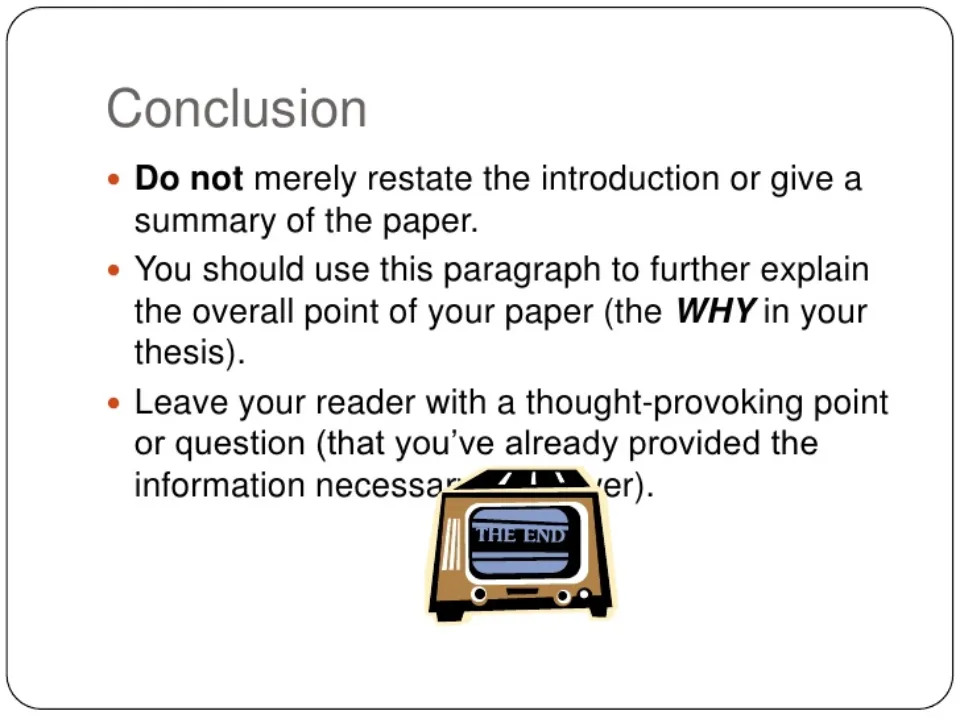
How to End a College Essay? 5 Effective Writing Tips
Do you struggle to write a strong conclusion for your college essay? Here are some excellent essay conclusion ideas and advice from professionals.
Writing the ideal conclusion for your college essay is a difficult task; it can be just as difficult as beginning your college essay.
When you’ve finished writing the introduction and the body of your admissions essay, the conclusion will be one of the last parts. Consider your essay’s most important elements for a moment, then include them in your conclusion.
The best methods for capping a college essay are discussed in the following paragraphs.
How to End a College Essay?
At the end of a college essay, it’s essential to finish on a high note. Clear, succinct, and most importantly, memorable should describe your conclusion. Your conclusion will be the final paragraph that college admissions officers remember because they read hundreds of essays.
Whatever strategy you use for the final paragraph, make sure to concentrate on the key takeaway. When a great movie ended, what did you feel warm and fuzzy about before the credits rolled? The conclusion should have an impact, be moving, and hint at the future.
Your conclusion shouldn’t restate the thesis statement, make the same points again, or fade away into nothingness. You want it to end on a high note rather than just fade away. It can be difficult to keep it interesting at this point, but it can make or break a good college essay.

Tips to End a College Essay
A college essay can be effectively concluded in a variety of ways, each of which will suit a particular applicant or topic. When deciding how to conclude, having a clear understanding of your essay’s theme will be extremely helpful.
Student essay themes often include:
- Making the most of a hardship (during the hardship)
- Growing from adversity (after the fact)
- Overcoming a fear
- Figuring out one’s values
- Learning an important lesson
- Building a valuable relationship/connection
Here are strategies for ending your college essay:
Full Circle
The Full Circle technique, also known as bookending, entails seamlessly tying your introduction and conclusion together. Reintroducing a word, phrase, person, or object from the beginning of your essay can help with this.
Your essay will feel complete, coherent, and settled with a bookend. You can help the admissions committee remember the journey they took while reading your essay and all they discovered about you by pointing out where your essay started.
When done right, bookending seems natural and leaves readers satisfied with everything you said.
Image of the Future
The main goal of a college essay is to persuade admissions committee members that you should be accepted to their school. You might demonstrate how you would be an asset to a college or university in order to accomplish this.

The “Image of the Future” strategy involves concluding your essay with an image of how the lesson you learned, the growth you experienced, or the fear you conquered will help you later on.
Some examples of this strategy could include:
- If the subject of your essay is how important mock trial was in helping you develop your identity in high school, you might describe a scenario in the future and demonstrate how the skills you learned in the mock trial will be useful in that scenario.
- If you write about developing interpersonal skills through a difficult relationship, you might describe a fictitious circumstance in which you face a greater test of your interpersonal abilities but still succeed.
- You can explore a fictitious scenario in which you actively facilitate a friendship for someone awkward in a social situation if you concentrate on your previous insecurity when making new friends.
- If you describe how classical music altered your worldview in your writing, you might conjure up an image of yourself performing classical music much later in life while still appreciating its crucial (and developing) role in the formation of your identity.
Readers get a sense of possibility and opportunity from these examples and this strategy more generally. They have a romantic feel because they encourage readers to see the link between adversity or hardship in the past and success or growth in the future. They frequently have an exploratory, lively, and promising tone as well.
Reflection
Use your conclusion as a chance to reflect on your experiences if you are having trouble including details about yourself in your essay. When using this strategy, be careful not to resort to summarizing!
Reiterating prior concepts or providing your reader with logical conclusions are examples of summarizing. By examining the ramifications of your story for you personally, reflecting goes beyond summarizing.

You will discuss various subjects and themes in your essay. How those topics and themes influence your beliefs and values can be discussed in the reflective conclusion.
Admissions officers will see that you value self-reflection and can do it well by concluding with an examination of who you are and what makes you you.). They also subtly explain to the admissions committee why you would be useful to their program.
Same, But Different
The Full Circle strategy is similar to this one, but it delves a little deeper. Your objective is to make readers consider a change that took place throughout your essay and to create a wider view of your narrative, not simply to tie up your story by repeating a symbol, image, or phrase.
The “Same, but Different” strategy can be applied to objects, settings, and even people and can be achieved through dialogue, description, or reflection. Some examples include:
- You could end your essay with dialogue that demonstrates the progress that has been made in your relationship with your father after focusing on how your persistence led to improvements in your difficult relationship with him.
- It might be effective to end your essay with a description of a new opportunity with a pet and your intentions to do things differently if your essay discusses how you undervalued your former pet.
- You could end your discussion by picturing yourself sitting at the same desk, taking on the same task—writing a research article—but with a different mindset.
This technique finds its basis in the idea that your reader will view the image differently than they previously had because of your writing.
Different, But the Same

While the “Same, but Different” strategy focuses on what has changed, the “Different, but the Same” strategy focuses on what has stayed the same and emphasizes that this too is important.
This tactic is useful if your essay concentrates on a fundamental characteristic of your personality that has previously benefited you rather than on difficulties. The significance of your core values can also be conveyed using this kind of conclusion.
Examples of essay endings that highlight a consistent element of a narrative include:
- To illustrate how, despite your location changing due to a cross-country move, you still find comfort in the knowledge that you are surrounded by a family who loves you, use an illustration of your father cooking after work.
- An illustration of the same happiness around a campfire is provided after a narrative in which a student struggles to decide to attend a new camp after spending five summers there.
Like with the “Full Circle” strategy, you may want to include specific words, phrases, or ideas from your introduction in this ending to tie things up. Therefore, this tactic ought to promote learning and development as well.
Readers should have a better understanding of the significance of the value, belief, personality trait, significant object, significant person, etc. that was previously stated by the time they started reading your essay.
The Length of Each Part in an Essay
The Length of Different Kinds of Essays
The Length of Essays in Different Grades
College Essay Endings to Avoid
You want the conclusion of your essay to have a strong impact, but these techniques might have the opposite effect. Here are some strategies to avoid.
Do Not Turn a College Essay Conclusion into a Summary
The smallest inconsistencies will be picked up on by admissions committee members as they read your essays. If you restrict them to a simple summary, they will notice that you lack knowledge of how to write college essay conclusions.

A good rule of thumb is to refrain from using clichés or everyday expressions like “that was the catch point” or “that was the aha moment for me and my family.”..’ If your conclusion starts with any of these words or phrases, you will never develop a convincing case. Your conclusion will lose all significance in the eyes of the admissions panel.
Never try to appear more honest than you actually are. Never presume that your readers are illiterate. Rather, when you analyze what you learned, be precise and unambiguous.
Review your previous lessons and put them to use. Think about being a writer whose readers expect a satisfying conclusion. What strategy would you use?
Never Use Any Stock Phrases
There should never be any clichés in a perfect essay conclusion. You might want to dazzle the reader. The result, though, might be quite the opposite. When writers are at a loss for words to say or write, they resort to using stock phrases.
The only chance you have to wrap up your argument is in the final paragraph. Avoid wasting it on clichés. Do not undermine the impression that your paper makes as a whole. Do not let one poorly chosen phrase lead you astray after you have already made some progress toward obtaining the desired admission.
So, are there any stronger substitutions for stock phrases?
- Put your conclusion in writing and use the stock phrase you wanted to use.
- When you’re done, remove the stock phrase from the conclusion.
- You’ll start off your conclusion with a strong phrase.
- Proofread and edit it.
Do Not Use Quotes in Your Conclusion; Focus on Your Argument and the Main Thought
Pick your essay’s epilogue’s words carefully. Don’t think about other people; think about yourself. No one says you can’t cite other sources. It is best to refrain from doing this in your conclusion, though. Your conclusion is so brief that there isn’t much room, if any, for direct quotations.

You forfeit the chance to fully express yourself when you quote. Do not include any quotes in the conclusion if you want to know how to end a college essay. Otherwise, your chances of achieving your academic objectives will be reduced.
How to Make Sure Your Writing Is Effective?
Good content is only one component of an excellent conclusion. Your content must be effectively paired with the right tone.
The Harvard Writing Center’s experts explain how you can add subtle drama to your essays by ending them with sentences that contain mostly one-syllable words. Additionally, they claim that using parallel sentences can help your essay end on a balanced note.
Consider altering the rhythm of your final sentences if you want to change the tone of your conclusion.
Writing nuanced tips and tricks is useful, but it’s not always that easy. The best way for any writer to get better is through feedback.
Final Thoughts: End a College Essay
Students frequently raise the bar for their essays at the conclusion of their college essays. You have the chance to offer special insight into the narrative you described and aid readers in understanding what you were trying to say with your story by using a variety of imaginative techniques.
You should be able to write a fantastic college essay with an engaging conclusion if you use our advice. Consider what you’ve learned, what you’ll do moving forward, and how you can cap off the story in a way that people will remember.
FAQs
What is a Good Closing Sentence?
Restate the big idea of the topic sentence using different words or a different order. Examine your message. What do you want the reader to know or understand? Introduce that concept in one sentence. Summarize the paragraph’s main idea without using the exact same words.
How Do You End a Conclusion in An Essay?
A good conclusion should do a few things:
- Restate your thesis.
- Put your main points in a summary or synopsis.
- Clarify the setting of your argument.


